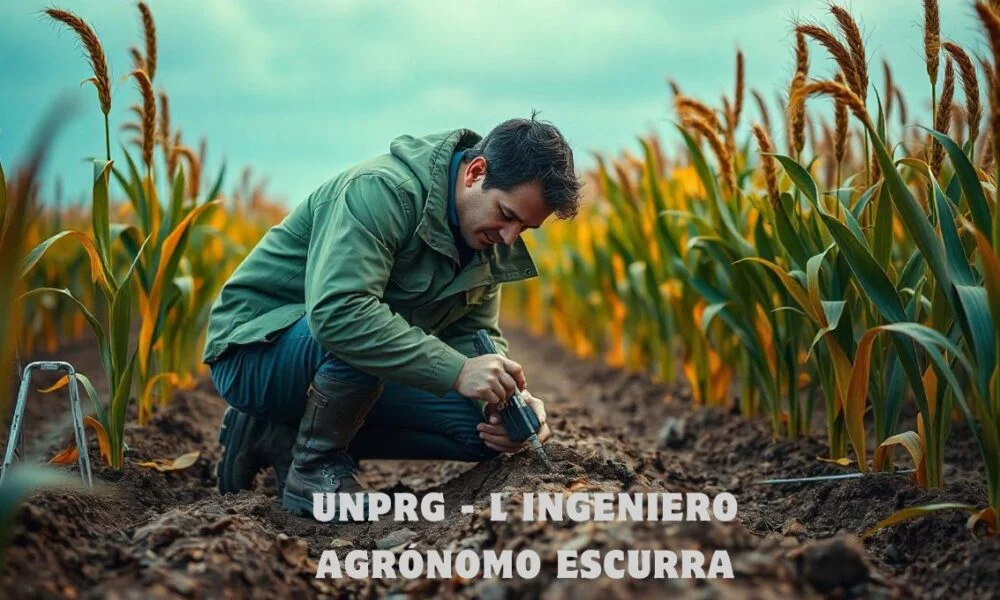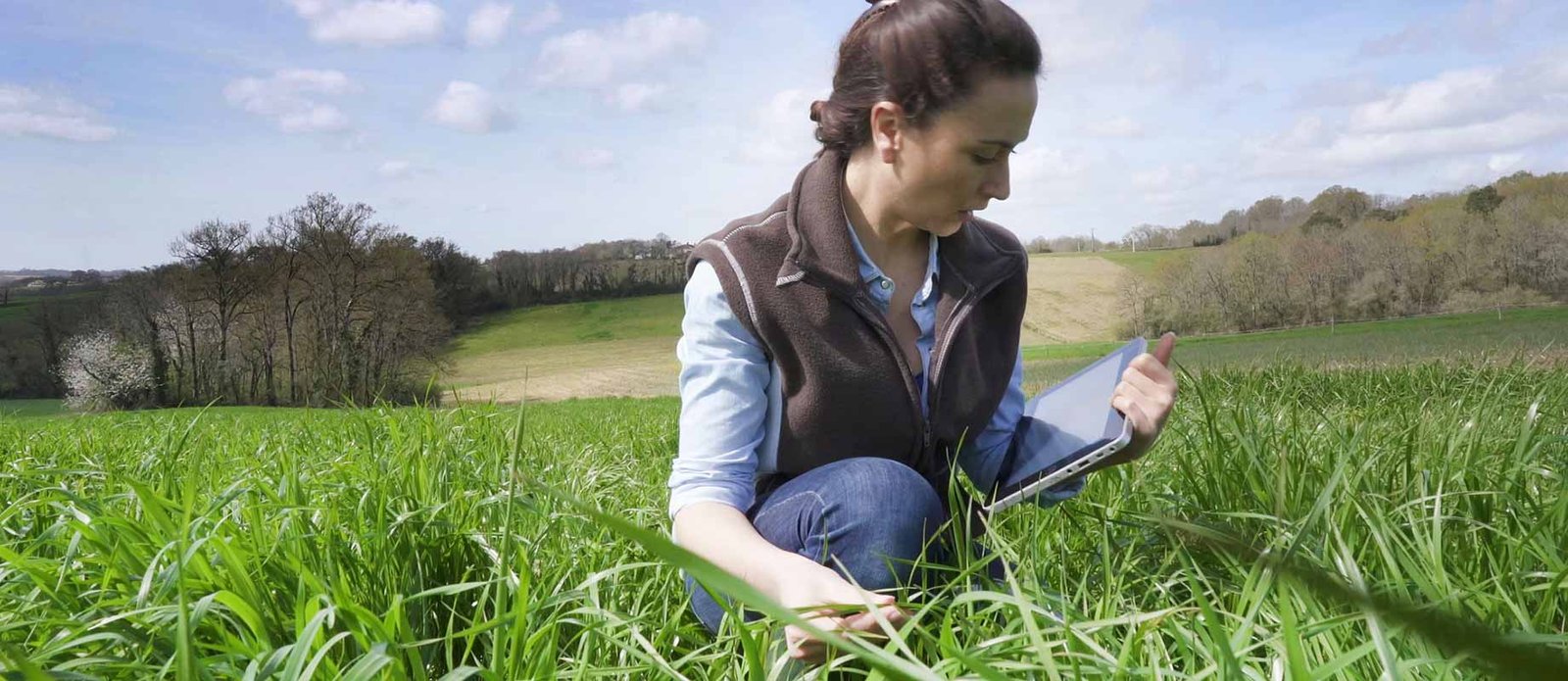Introduction
In the ever-evolving world of agriculture, understanding the principles that govern plant science is crucial. This is where institutions like UNPRG (Universidad Nacional Pedro Ruiz Gallo) and their esteemed faculty, including unprg – ingeniero agrónomo escurra clso, come into play. Their commitment to nurturing the next generation of agronomists is vital for promoting sustainable farming practices and ensuring food security. In this blog, we will delve into the importance of agronomy, the role of unprg – ingeniero agrónomo escurra clso, and how UNPRG shapes the future of agricultural sciences.
The Significance of Agronomy
Agronomy is the branch of agricultural science that focuses on the study of crops and the soils in which they grow. It encompasses various fields, including plant genetics, soil science, meteorology, and environmental science. Here are some reasons why agronomy is vital:
1. Food Security
With the global population projected to reach 9.7 billion by 2050, there is an urgent need for increased food production. Agronomists play a crucial role in developing sustainable farming practices to meet this demand. By implementing effective crop management techniques, agronomists can help maximize yields while minimizing environmental impacts.
2. Sustainable Practices
The implementation of sustainable agricultural practices is essential to protect our planet’s resources. Agronomy focuses on methods that minimize environmental impact while maximizing crop yield. This includes the use of cover crops, crop rotation, and reduced pesticide use, all of which contribute to healthier ecosystems.
3. Economic Development
Agriculture is a significant contributor to the economy of many countries. By improving agricultural productivity, agronomists can help enhance the livelihoods of farmers and rural communities. When farmers succeed, local economies thrive, leading to increased employment opportunities and better living standards.
4. Innovation
Agronomy drives innovation in crop production, pest management, and soil conservation. Research conducted by agronomists leads to the development of new technologies that can transform agriculture. For instance, advancements in biotechnology and genetic engineering are revolutionizing the way crops are grown and managed.
UNPRG: A Hub of Agricultural Excellence

Overview of UNPRG
Founded in 1993, UNPRG is located in the Lambayeque region of Peru. It has earned a reputation for excellence in various fields, particularly in agriculture. The university offers a comprehensive curriculum that integrates theoretical knowledge with practical skills. Students are equipped with the tools necessary to tackle the challenges faced in the agricultural sector.
The Faculty of Agronomy
At UNPRG, the Faculty of Agronomy is dedicated to cultivating the next generation of agricultural experts. The faculty members, including Ingeniero Agrónomo Escurra Clso, are not only educators but also researchers committed to advancing the field of agronomy. They provide students with hands-on experience, guiding them through laboratory work, field studies, and research projects.
Curriculum Overview
The agronomy program at UNPRG is designed to provide students with a well-rounded education that encompasses various aspects of agricultural science. Key subjects include:
- Soil Science: Understanding soil properties and management is fundamental for successful agriculture. This subject explores soil formation, classification, and conservation techniques.
- Crop Production: Students learn about different crop types, cultivation methods, and the factors affecting crop yield.
- Pest Management: This subject focuses on identifying and controlling pests that threaten agricultural productivity. Students explore both chemical and biological control methods.
- Sustainable Agriculture: Emphasizing eco-friendly practices, this course teaches students how to implement sustainable farming techniques that protect the environment.
Practical Learning
UNPRG prioritizes practical learning experiences. Students participate in fieldwork, internships, and research projects, allowing them to apply theoretical knowledge in real-world settings. This hands-on approach enhances their understanding of agronomy and prepares them for successful careers.
Ingeniero Agrónomo Escurra Clso: A Catalyst for Change
Professional Background
Ingeniero Agrónomo Escurra Clso is a prominent figure in the field of agronomy. With years of experience and a wealth of knowledge, he has dedicated his career to educating aspiring agronomists. His teaching philosophy emphasizes the importance of practical learning alongside theoretical education.
Contributions to Agronomy
- Research Initiatives: Ingeniero Escurra Clso has been involved in numerous research projects focused on improving crop yields and sustainable farming practices. His work has contributed significantly to the understanding of soil health and its impact on agricultural productivity.
- Community Engagement: Understanding the challenges faced by local farmers, Ingeniero Escurra Clso has actively engaged with communities to provide them with knowledge and resources to improve their farming techniques. His efforts have empowered many to adopt sustainable practices that benefit both their livelihoods and the environment.
- Mentorship: As a mentor, Ingeniero Escurra Clso inspires students to explore innovative solutions to agricultural challenges. His guidance has helped shape the careers of many successful agronomists.
Achievements and Recognition
Throughout his career, Ingeniero Escurra Clso has received several accolades for his contributions to agriculture and education. His research findings have been published in various journals, and he has presented at numerous conferences, sharing insights that promote sustainable practices in agriculture.
The Role of Technology in Modern Agronomy
Precision Agriculture
Precision agriculture is a revolutionary approach that uses technology to optimize field-level management regarding crop farming. By employing GPS, sensors, and data analytics, agronomists can monitor and manage crops more efficiently. Ingeniero Escurra Clso emphasizes the importance of integrating technology into the curriculum at UNPRG, preparing students for a tech-driven agricultural future.
Biotechnology
Biotechnology plays a crucial role in modern agriculture by enabling the development of genetically modified organisms (GMOs). These crops are engineered to exhibit desirable traits such as pest resistance, increased yield, and drought tolerance. Ingeniero Escurra Clso advocates for responsible biotechnology use, ensuring that students understand both the benefits and ethical considerations involved.
Sustainable Farming Technologies
Innovations such as vertical farming, hydroponics, and aquaponics are gaining popularity as sustainable alternatives to traditional farming methods. These technologies minimize land use and water consumption while maximizing production. UNPRG incorporates these practices into its curriculum, encouraging students to explore innovative solutions for future food production.
Case Studies: Successful Agronomy Projects
Community-Based Agricultural Initiatives
Under the guidance of Ingeniero Escurra Clso, UNPRG has been involved in several community-based agricultural projects. These initiatives aim to improve food security and empower local farmers through education and resources.
- Project Green Thumb: This initiative focuses on teaching sustainable farming practices to smallholder farmers in the Lambayeque region. By providing training on organic farming, crop rotation, and pest management, the project has helped increase crop yields and income for participating farmers.
- The School Garden Project: Ingeniero Escurra Clso has implemented school garden programs in local schools to educate students about agriculture and healthy eating. These gardens provide hands-on experience in farming while promoting nutrition and sustainability.
Research Projects at UNPRG
UNPRG’s research initiatives have made significant contributions to the field of agronomy.
- Soil Health Research: Ingeniero Escurra Clso has led studies on soil health management, exploring the impact of various fertilizers and practices on crop productivity. The findings have informed local farmers on effective soil management techniques.
- Climate Resilience Studies: Research conducted by UNPRG has focused on developing climate-resilient crop varieties. By understanding how different crops respond to changing climatic conditions, agronomists can guide farmers in selecting the best varieties for their regions.
Challenges Facing Modern Agriculture

Climate Change
Climate change poses significant challenges to agriculture worldwide. Increasing temperatures, unpredictable rainfall, and extreme weather events can disrupt farming practices and threaten food security. Ingeniero Escurra Clso emphasizes the need for agronomists to develop adaptive strategies to mitigate these impacts.
Resource Depletion
As the global population grows, the demand for agricultural resources such as land and water intensifies. Unsustainable practices can lead to soil degradation, water scarcity, and loss of biodiversity. The education provided at UNPRG aims to equip students with the knowledge to promote sustainable resource management.
Economic Pressures
Farmers face numerous economic challenges, including fluctuating market prices, input costs, and access to credit. Agronomists play a crucial role in helping farmers navigate these pressures by providing insights into efficient farming practices and financial management.
The Future of Agronomy at UNPRG
Advancements in Technology
The future of agriculture lies in technological advancements. UNPRG is committed to incorporating new technologies into its curriculum, preparing students to navigate the evolving agricultural landscape. Innovations such as precision agriculture, drone technology, and genetic engineering are crucial for sustainable farming.
Focus on Sustainability
As global challenges such as climate change and resource depletion intensify, unprg – ingeniero agrónomo escurra clso is focused on sustainability in its teaching and research. Students are encouraged to explore sustainable practices that can be implemented locally and globally.
Collaboration and Research
Collaboration between universities, government agencies, and agricultural industries is vital for progress in agronomy. UNPRG fosters partnerships that promote research and development, ensuring that students have access to the latest advancements in the field.
Engaging with the Community
UNPRG recognizes the importance of community engagement in agricultural education. By collaborating with local farmers, NGOs, and governmental organizations, the university ensures that its programs are relevant and impactful. This engagement helps bridge the gap between academic knowledge and practical application, ultimately benefiting the agricultural community.
Conclusion
unprg – ingeniero agrónomo escurra clso exemplifies the commitment to advancing agricultural science and education. Through a focus on sustainable practices, technological innovation, and community engagement, the university prepares students to tackle the challenges facing modern agriculture. As we move towards a future marked by population growth and environmental challenges, the role of agronomists has never been more critical. Institutions like UNPRG are paving the way for a greener, more sustainable future, one student at a time.
